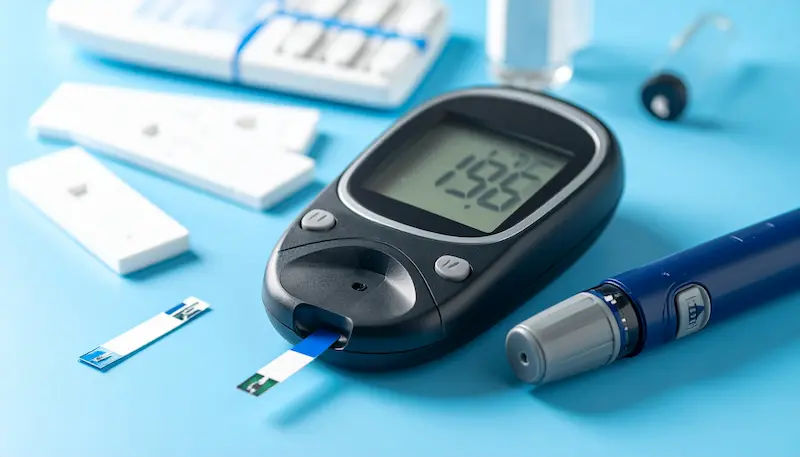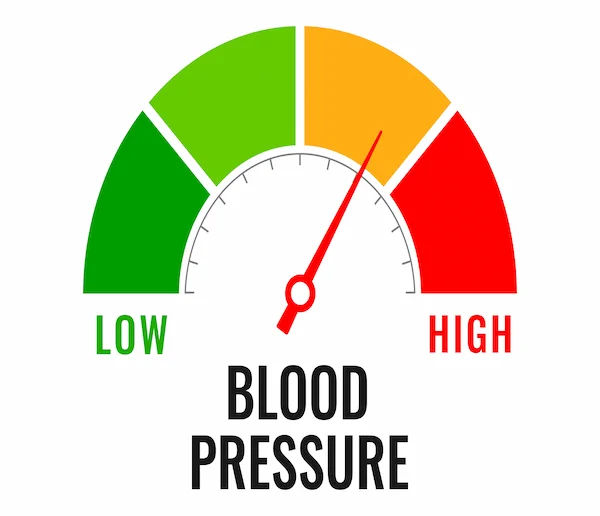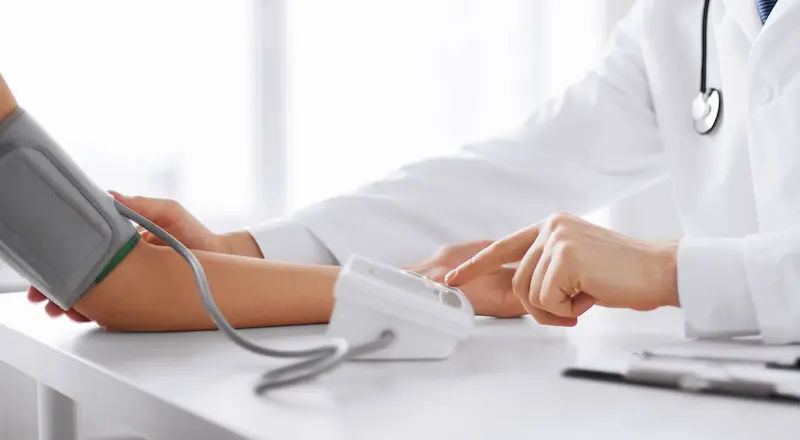Hypertension in Young Adults: A Silent Threat & How to Fight Back
Hypertension in young adults is a growing silent threat. Learn the causes, symptoms, risks, and effective strategies to prevent and manage high blood pressure early.

Written by Dr. J T Hema Pratima
Reviewed by Dr. Dhankecha Mayank Dineshbhai MBBS
Last updated on 13th Jan, 2026

Introduction
Think high blood pressure, or hypertension, is just an older person's problem? Think again. A silent and alarming shift is occurring, with a rising number of young adults in their 20s and 30s being diagnosed with this potentially dangerous condition. Often called the "silent killer" because it presents with few or no symptoms, unchecked hypertension can silently damage your blood vessels, heart, and kidneys for years. This article is your essential guide to understanding why this is happening, recognising the subtle signs, and taking proactive steps to protect your long-term health. We'll break down the modern causes, from diet to stress, and provide actionable strategies for prevention and management, empowering you to take control of your cardiovascular health today.
What is Hypertension? Understanding the Numbers
Hypertension is a medical condition where the force of blood against your artery walls is consistently too high. This relentless pressure forces your heart and circulatory system to work much harder than they should, leading to wear and tear over time. It's measured using two numbers: systolic and diastolic pressure.
Systolic vs. Diastolic: What Do They Mean?
Systolic Pressure (the top number): This measures the pressure in your arteries when your heart beats and pumps blood out.
Diastolic Pressure (the bottom number): This measures the pressure in your arteries when your heart is at rest between beats.
Both numbers are important, but for most young adults, an elevated systolic pressure is often the first sign of developing hypertension, frequently linked to lifestyle factors like stress and high-intensity exercise without proper cool-down.
Blood Pressure Categories: From Normal to Hypertensive Crisis
The American Heart Association defines blood pressure categories as follows:
Normal: Less than 120/80 mm Hg
Elevated: Systolic between 120-129 and diastolic less than 80
Hypertension Stage 1: Systolic between 130-139 or diastolic between 80-89
Hypertension Stage 2: Systolic at least 140 or diastolic at least 90
Hypertensive Crisis: Systolic over 180 and/or diastolic over 120 (requires immediate medical attention)
Consult Top Specialists for Personalised Tips
Why Are More Young Adults Developing Hypertension?
The trend of hypertension in young adults is no accident; it's deeply intertwined with modern lifestyles. Unlike in older populations, where age-related artery stiffness is a key factor, the causes in the young are predominantly preventable.
The Primary Culprits: Lifestyle and Diet
The standard Western diet and sedentary habits are major drivers.
The Impact of High Sodium and Processed Foods: Excessive salt intake is a primary culprit. Processed foods, fast food, canned soups, and even bread are loaded with sodium, which causes your body to retain water, increasing blood pressure. Coupled with low potassium intake (which helps balance sodium), this creates a perfect storm for hypertension.
Sedentary Lifestyles and Lack of Exercise: Desk jobs, long commutes, and screen-based entertainment have led to increasingly inactive lives. Regular physical activity is crucial for maintaining healthy blood vessel elasticity and heart strength. Without it, the risk of weight gain and high blood pressure skyrockets.
Underlying Health Conditions
The Role of Obesity and Metabolic Syndrome: Excess weight, particularly around the abdomen, is strongly linked to hypertension. It can lead to insulin resistance and metabolic syndrome—a cluster of conditions including high blood sugar, abnormal cholesterol, and increased waist circumference—that dramatically increase cardiovascular risk.
Secondary Hypertension: Kidney and Thyroid Issues: In a smaller percentage of cases, high blood pressure is caused by an underlying condition like kidney disease, thyroid disorders, or sleep apnea. This is known as secondary hypertension and often appears suddenly and causes higher blood pressure than primary hypertension.
The Silent Symptoms You Might Be Missing
For most young adults, hypertension is utterly asymptomatic. This is what makes it so dangerous. However, when blood pressure reaches severely high levels, some may experience:
Persistent headaches
Shortness of breath
Nosebleeds
Flushing or dizziness
Chest pain or visual changes
When to Seek Emergency Care
If you experience severe chest pain, severe headache with confusion or blurred vision, nausea, or severe anxiety, seek emergency care immediately. These could be signs of a hypertensive crisis, which can lead to a stroke or heart attack.
How is Hypertension Diagnosed in Young Adults?
A single high reading doesn't mean you have hypertension. Diagnosis typically requires multiple elevated readings taken on separate occasions.
The Importance of Accurate Blood Pressure Monitoring
Use a validated, automated cuff.
Avoid caffeine, exercise, and smoking for 30 minutes prior.
Sit quietly for 5 minutes with your back supported and feet flat on the floor.
Ensure the cuff is on a bare arm at heart level.
Diagnostic Tests You Might Need
If your doctor confirms hypertension, they may recommend tests to check for organ damage or identify causes of secondary hypertension. These can include:
Blood tests (cholesterol, blood sugar, kidney function)
Urine tests
An electrocardiogram (EKG) to check your heart's electrical activity
An echocardiogram to see your heart's structure and function
For convenient and accurate testing, Apollo24|7 offers a convenient home collection for tests like lipid profile, HbA1c, and kidney function panels, making it easier to get the answers you need.
Effective Treatment and Management Strategies
The good news is that hypertension in young adults is highly manageable and often reversible through dedicated lifestyle changes.
First-Line Defence: Lifestyle Modifications
This is the cornerstone of treatment.
Adopting the DASH Diet: The dietary approaches to stop hypertension (DASH) diet is proven to lower blood pressure. It emphasises fruits, vegetables, whole grains, lean protein, and low-fat dairy while reducing saturated fat, cholesterol, and sodium.
Building a Sustainable Exercise Routine: Aim for at least 150 minutes of moderate-intensity aerobic activity (like brisk walking, cycling, or swimming) or 75 minutes of vigorous activity per week. Even small bursts of activity throughout the day help.
Stress Management Techniques (Yoga, Meditation): Chronic stress keeps your body in a constant state of "fight or flight," elevating blood pressure. Practices like mindfulness, meditation, deep breathing, and yoga can be powerful tools for calming your nervous system.
When Medication is Necessary
If lifestyle changes aren't enough to control your blood pressure, your doctor may prescribe medication. Common options include ACE inhibitors, ARBs, diuretics, or calcium channel blockers. The goal is to find the most effective medication with the fewest side effects. If your condition does not improve after trying lifestyle methods, consult a doctor online with Apollo24|7 for further evaluation and to discuss if medication is right for you.
The Long-Term Risks of Untreated Hypertension
Ignoring high blood pressure is a gamble with your long-term health. The constant force damages the delicate lining of your arteries, leading to:
Heart Attack and Heart Failure: Hardened and narrowed arteries reduce blood flow to the heart.
Stroke: Damaged arteries in the brain can burst or become blocked.
Kidney Disease: Kidneys filter waste from blood; damaged blood vessels can lead to kidney failure.
Vision Loss: Damage to the blood vessels in the eyes (retinopathy).
Sexual Dysfunction: Can affect both men and women due to reduced blood flow.
Prevention: Building Healthy Habits for Life
Prevention is always better than cure. Embedding healthy habits early on is your best defence:
Maintain a Healthy Weight: Even a 5-10 pound weight loss can significantly impact blood pressure.
Eat a Whole-Foods Diet: Focus on fruits, veggies, and whole grains. Limit processed foods.
Reduce Sodium Intake: Aim for less than 2,300 mg per day (about one teaspoon of salt).
Exercise Regularly: Find activities you enjoy to make it a permanent part of your routine.
Limit Alcohol and Avoid Smoking: Both are major contributors to high blood pressure.
Manage Stress: Prioritise sleep and make time for relaxation.
Get Regular Check-ups: Know your numbers. Early detection is key.
Conclusion
Hypertension in young adults is a serious but manageable health challenge. The rise in cases is a direct reflection of our modern world, but it also means the power to reverse this trend lies largely in our hands. By understanding the risks, recognising the lack of symptoms, and taking proactive steps through diet, exercise, and stress reduction, you can protect your heart health for decades to come. This isn't about a short-term fix; it's about building a foundation of wellness that will support a vibrant, healthy life. Start today by getting your blood pressure checked, assessing your lifestyle, and making one positive change. Your future self will thank you. If you have concerns about your blood pressure or need a personalised plan, consult a doctor online with Apollo24|7 for expert guidance.
Consult Top Specialists
Consult Top Specialists for Personalised Tips

Dr. Vivek D
General Physician
4 Years • MBBS
Bengaluru
PRESTIGE SHANTHINIKETAN - SOCIETY CLINIC, Bengaluru

Dr. Syed Ismail Ali
General Practitioner
7 Years • MBBS
Hyderabad
Apollo 24|7 Clinic, Hyderabad

Dr Syed Mateen Pasha
General Physician
2 Years • MBBS
Bengaluru
PRESTIGE SHANTHINIKETAN - SOCIETY CLINIC, Bengaluru

Dr. Harshendra Jaiswal
General Physician/ Internal Medicine Specialist
12 Years • MBBS , MD (General medicine)
Kolkata
108 DHANA DHANVANTARI Clinic, Kolkata
(25+ Patients)
Dr. Thandra Ramoji Babu
General Physician/ Internal Medicine Specialist
5 Years • MBBS, DNB(General Medicine)
Warangal
Sai Ram multi-specialty hospital, Warangal
Consult Top Specialists

Dr. Vivek D
General Physician
4 Years • MBBS
Bengaluru
PRESTIGE SHANTHINIKETAN - SOCIETY CLINIC, Bengaluru

Dr. Syed Ismail Ali
General Practitioner
7 Years • MBBS
Hyderabad
Apollo 24|7 Clinic, Hyderabad

Dr Syed Mateen Pasha
General Physician
2 Years • MBBS
Bengaluru
PRESTIGE SHANTHINIKETAN - SOCIETY CLINIC, Bengaluru

Dr. Harshendra Jaiswal
General Physician/ Internal Medicine Specialist
12 Years • MBBS , MD (General medicine)
Kolkata
108 DHANA DHANVANTARI Clinic, Kolkata
(25+ Patients)
Dr. Thandra Ramoji Babu
General Physician/ Internal Medicine Specialist
5 Years • MBBS, DNB(General Medicine)
Warangal
Sai Ram multi-specialty hospital, Warangal
More articles from High Blood Pressure
Frequently Asked Questions
Can hypertension in young adults be cured?
While 'cured' might not be the right term, hypertension can often be effectively controlled and even reversed to normal levels through significant and sustained lifestyle changes, especially when addressed early. In some cases, medication may be needed for long-term management.
I'm fit and exercise regularly. Can I still have high blood pressure?
Yes. While exercise greatly reduces risk, other factors like genetics, high sodium intake, chronic stress, or underlying health conditions can still cause hypertension. This is why regular screening is important for everyone.
How often should I check my blood pressure if I'm young?
If your blood pressure is normal (under 120/80), getting it checked at least once every two years is sufficient. If you have risk factors (family history, poor diet, stress) or have had elevated readings, check it annually or as recommended by your doctor.
Does anxiety cause permanent high blood pressure?
Anxiety can cause temporary spikes in blood pressure, but it does not typically cause permanent hypertension. However, chronic anxiety can lead to lifestyle choices (poor diet, lack of exercise, alcohol use) that do contribute to long-term high blood pressure.
What is a normal blood pressure for a 25-year-old?
A normal blood pressure for a healthy 25-year-old is the same as for any adult: less than 120 mm Hg systolic and less than 80 mm Hg diastolic (less than 120/80).




